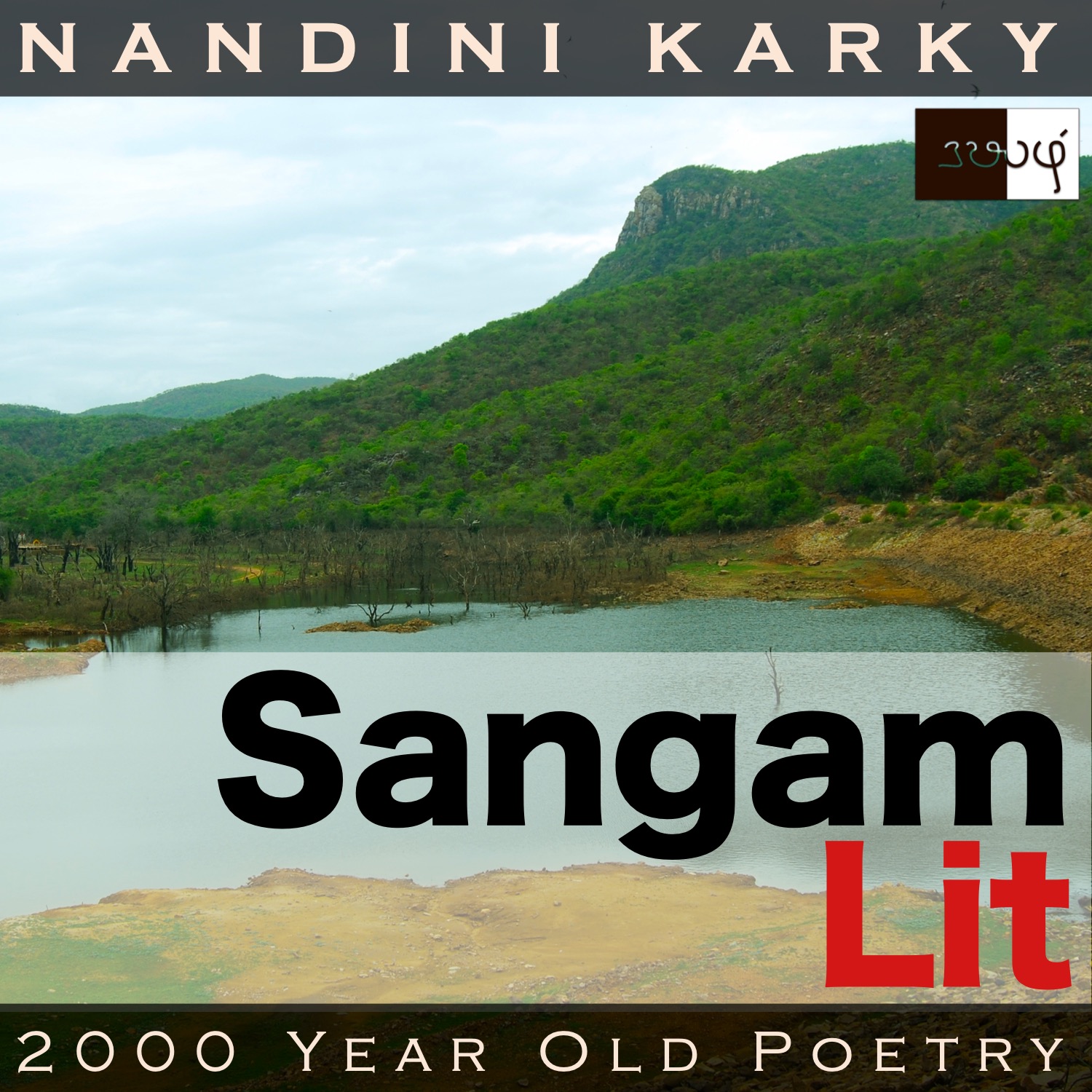Podcast: Play in new window | Download
Subscribe: Apple Podcasts | Spotify | Amazon Music | Android | iHeartRadio | TuneIn | RSS | More

In this episode, we shall get drenched in the downpour of Natrinai Poem 5, written by Perunkundroor Kizhaar, on the Kurinji landscape. As we have seen before, this pertains to the mountainous regions of ancient Tamil land. These words are spoken by the lady’s confidante to the lady, on the subject of her man’s parting away.
நிலம் நீர் ஆர, குன்றம் குழைப்ப,
அகல் வாய்ப் பைஞ் சுனைப் பயிர் கால்யாப்ப,
குறவர் கொன்ற குறைக் கொடி நறைப் பவர்
நறுங் காழ் ஆரம் சுற்றுவன அகைப்ப,
பெரும் பெயல் பொழிந்த தொழில எழிலி
தெற்கு ஏர்பு இரங்கும் அற்சிரக் காலையும்,
அரிதே, காதலர்ப் பிரிதல்-இன்று செல்
இகுபெயல் தரூஉம் வாடையொடு
மயங்கு இதழ் மழைக் கண் பயந்த, தூதே.
I simply love these Kurinji verses, for these are instantaneous mind trips to a mountain resort and I seem to emerge fully rejuvenated. Many of the words are familiar as well. Like the mountains that seem to age so well, so are these words from these mountainous regions, living on, for long. There were references to a ‘சுனை’, which is a mountain fresh-water spring and ‘குறவர்’, the name we still use for our forest-dwelling people. ‘ஆரம்’ which was used then to mean ‘encircle’ has now come to mean a necklace, a golden necklace. Delighted to discover that this beautiful word ‘எழிலி’ refers to a cloud. I sensed as I traversed through the words, rains and dew drops falling gently on me and a wind wafting around.
After some diving into different explanatory texts, I was able to ascertain the meaning of the verse thus: The lady’s confidante consoles the lady saying that it is the season when the land is filled with water and the mountains flourish with greenery, those wide-mouthed springs burst forth and water the mountain crops. Even those vines that were chopped to death by the mountain dwelling Kuravas, have now bounced back and are encircling the fragrant sandalwood trees. The cloud that accomplished the task of pouring down these great rains seems to descend on the south and part away. It’s that ‘முன்பனிக்காலம்’/ the early dew season. In this season, the confidante says, your man will not part from you, especially when the perpetrator of all these changes in our world, that northerly wind gathers the rain drops from your eyes and flies as your messenger, to shower on your man. Sensing this, he will not part from you. Worry not!
What a friend indeed! We meet the lady’s confidante again, an important character in these poems, who seems so wise in her words. The perfect psychological counsellor! Here she sounds so loving and wipes the tears of our lady. As she does that, she fills our mind cells with the luscious sights and scents of a rain drenched mountain; There, the green vines encircling with love around the fragrant sandalwood and here, springs bursting forth and bubbling along to water the crops. Satisfied clouds and a sensitive wind! The same wind that becomes a messenger of love and travels to wipe away the lady’s tears and her sorrow.
In another coincidence, it’s now the same early dew season or the ‘mun pani’ which falls in the months between mid December to mid February, in Tamil land. It feels different here, on the coast but in every part of the state, this mist is well-known to the Tamil people. Another image that comes to mind is the Kuruvas referred to, in these old verses. Now, the destruction of their habitat or other economic reasons have driven these people to the cities. This morning, as I was sitting in my car and waiting, on a street, a family of Kuruvas walked by. On the hip of one of the ladies, smiled a young child and this mother was also looking into his eyes and smiling. That beautiful scene is frozen in my mind’s eye. It’s sad that life has transformed these people of the past, who lived in such sylvan surroundings and made them scavengers, scanning through the contents of dustbins and salvaging what they can. In their own way, they are still making life beautiful for the world. Speaking of beauty, they are great artisans and the beaded jewellery they make, echoes of their many talents. I wish for a wind of change to wipe their sorrows too, like the ‘வாடை’/the northerly wind, that bringer of rains and luscious joy!




Very nice one.. Also it was a bitter truth which I havent tought about kuravar people….